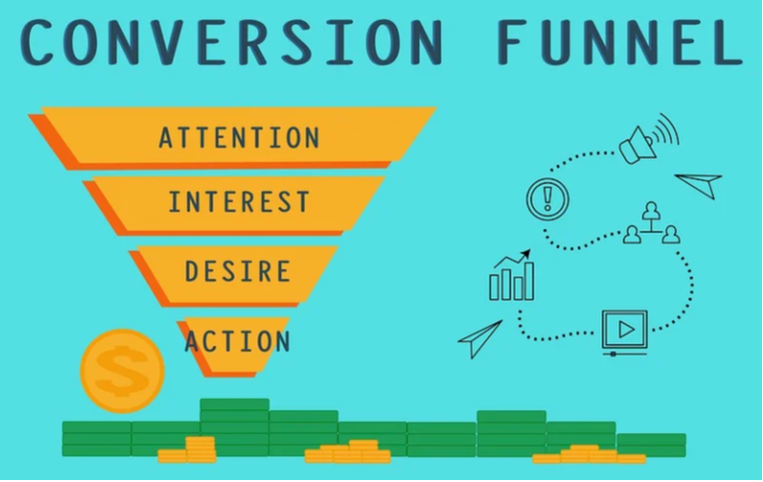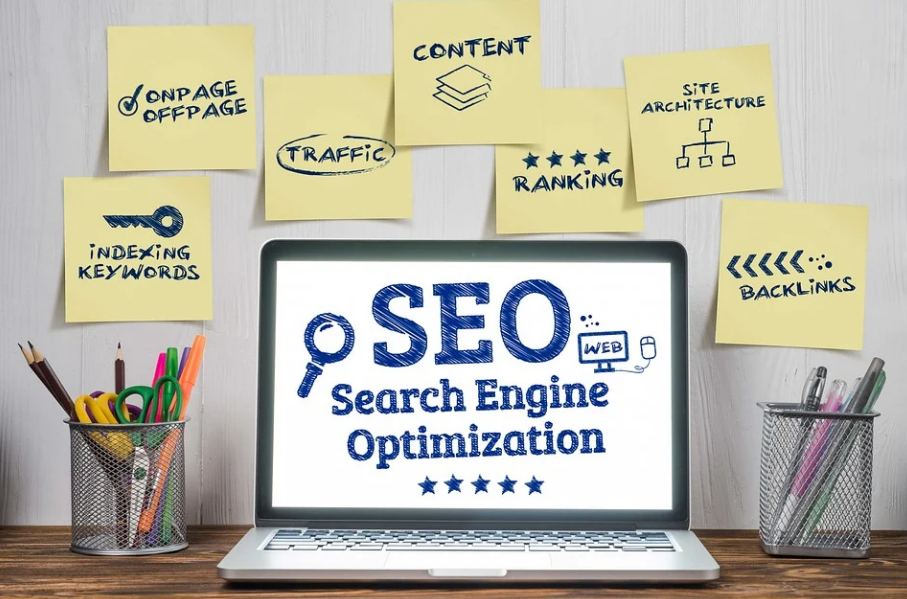|
What are websites? Are they sales tools for vendors and service providers, or are they electronic guidance for potential customers? Put simply, are you selling or are you helping? Your answer to this question may determine the success of your website. So think carefully. How we define what a website is all depends on which side of the fence we're on. I suspect that most - if not all - vendors and service providers would say their website is a sales tool. But this is a fundamentally flawed perspective. Adopt this position, and sooner or later you'll pay for it.
A website that helps them buy when they want to buy. Helps them understand when they want to understand. And - most importantly - a website that helps them decide when they want to decide. If you really want to build trust, credibility, authority, and site loyalty, helping visitors is the way to go. Of course, that's not to say you have to do it for free. We're all in business to make money after all. In fact, the main aim of many of your visitors will be to buy something. But it's important that you focus on them, not on you. For example, your visitors don't want to know what you have to sell. They want to know what they can choose to buy. If your primary focus is sales, your visitors will pick up on it.
The key to successful online help is to always try to answer one simple question: What does the reader want to know? Do they want reference information or how-to information? Do they want to know how to get started or how to get out of trouble? Sure, when you're writing for a website, the subject material is different, but the question is still the same. What does your reader want to know? Obviously, the answer to this question will be different for everyone, but there are some common questions you can ask yourself which might help you decide:
Whether you do some real research or just make some educated guesses, it's important that you know your visitor very well. Then, and only then, can you help them. And only when you help them will you start to realize the true sales potential of your website. Happy writing! Target Practice Pro is your go-to digital marketing solution for planting marketing seeds and boosting your business. Call us now or schedule a talk.
0 Comments
Stop and Go marketing and ENERGY go hand in hand. Stop and Go marketing says what it is. We go out to market for time periods and then we get busy with our work and stop marketing. Here is the problem with that. Using the example of a funnel filled with clients and business contacts, when we stop marketing the funnel becomes empty over a time period. When the clients dry up we go back to our funnel, which is empty and once again, we panic and rush out to market.
Here is a great example of a metaphor that we experience everyday. "I was on the way to my hair appointment this month. I chose to take the side roads rather than the freeway. I noticed with each block I had to either take my foot off the gas and slow down to yield or I had to come to a complete stop. In any case, I was using more gas to get moving again. At each stop I noticed two types of moving forward. I could either push on the gas slowly to continue or I had to peel out to beat the traffic. Either way I had to start again from a stop. Had I taken the freeway (after rush hour) my drive would have been consistent and I would have used less gas. Or, in marketing terms, less energy. Are you marketing...
There is a perspective and a truth to a statement I heard from a successful business owner. Marketing is your job. What you "do" is the cherry on top. What he's saying is this. When you are not out "doing" your business, you should be marketing. Keeping that focus, your funnel will be filled and you will not experience Stop and Go Marketing.
Let's summarize: Stop and Go Marketing...
Consistent Marketing...
Remember, we all need to market in order to have a financially successful business. It's your choice on how you want to market and what type of approach and plan will help you succeed with ease, energy and excitement. Target Practice Pro is your go-to digital marketing solution for planting marketing seeds and boosting your business. Call us now or schedule a talk.
Here are seven simple yet POWERFUL ideas for you to reflect on. This will assist you adjust your marketing strategies...which can provide STRONG results on everything you sell.
3. You don't tell people to come back and visit. Customers may not purchase the first time they visit your website. The more times they show up, the greater the chance they will buy.
6. You don't make your website appear professional. It should be easy to navigate through. The graphics should be related to your main theme. 7. You don't test and improve your ads before going online. You have to continually test and improve your ad copy to get the highest possible response rate. Target Practice Pro is your go-to digital marketing solution for planting marketing seeds and boosting your business. Call us now or schedule a talk.
Here's a list of quick, rapid-fire tips and strategies to boost your online business:
3. Title Tags Many search engines overlook most meta-tags, but a lot still recognize the title tag. Include your most important keywords at the beginning of the title, this will increase its prominence. When optimizing the title tag, get straight to the point. Don't include stop words like "to, a, an, as, in". Search Engine Spiders overlook these words and including them really just decreases your keyword weight in the tag. 4. Description Tag The description-tag is still in use by some search engines. Explain the page's content in one sentence. This tag still shows up in some engines, so try to make the tag read good and catch someone's eyes.
7. Internal Links Interlink your pages using keyword-rich anchor text. To make it easy and without much sacrifice to the look of your page, you can use bread crumb navigation, like placing a link behind the keywords "SEO Services" if your website delivers digital marketing and repeating the process within the website interlinking relevant areas. 8. IMG Alt Tags Include descriptive IMG Alt Tags whenever possible. This allows search engines to "read images" and categorize them. Please remember when someone hovers over the image this text will be displayed, so make it readable. 9. Body Area It's a very good idea when SEO Optimizing a page to include your main keywords at the beginning and end of the body text. Try to include your keywords in this area without sounding robotic. A good SEO Strategy is to break up body text with header tags (H1, H2, H3) as explained above. The body area should contain 300- 1300 words Try to include variations of your main keyword or keyword phrases also. Writing in a natural sounding way is very important. Target Practice Pro is your go-to digital marketing solution for planting marketing seeds and boosting your business. Call us now or schedule a talk.
|
AuthorTPPro Blog brings you the best insights and hacks to build a success story with digital marketing. Boost your business by reading our weekly posts. Archives
April 2022
Categories
All
|












 RSS Feed
RSS Feed
